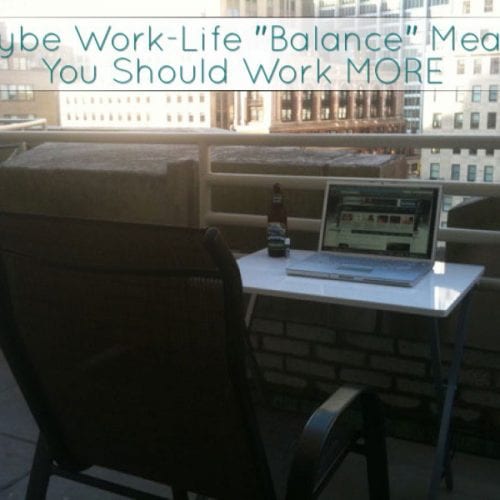
This article is more than ten years old. It originally ran on a now-defunct website called The Gloss, where Bullish got its start. This post was created entirely by humans, as AI didn’t exist back then (but also: why would you want to read something no one could be bothered to write?) For more recent posts, try here.
If you find yourself in your late twenties, living with roommates and without health insurance, you may rightfully wonder how on earth it could ever be possible to have a baby before your eggs get old. From a former head of research of a pharmaceutical company, as quoted in a scare-tactic-filled article on The Daily Mail:
Today, we know that fertility drops from the age of 25 and by the time you get to 35, it is relatively low. It is only a minority of women who are able to conceive past the age of 40.
I have looked at eggs under a microscope and although a woman in her late 30s may look young, her eggs, by this point, don’t.
They age, they become tacky and ragged. There is a visual difference between young and old eggs that even an untrained eye can see.
Nice! So, here’s one time-tested financial plan for motherhood: become a famous actress. Have as many kids as you like, hiring several nannies to work on three-month rotations so the kids don’t get too attached. Only work when there’s a chateau nearby for your children. (Naturally, you’ll have to be beautiful and have a famous actor as a father to pull this off).

Here’s another: Be Swedish. Have a baby anytime you want (according to Save the Children, Sweden is the best place in the world to be a mother.)You and your partner will get 480 paid leave days to split, with each parent required to take at least 60. The government will consider it a national policy issue to try to get more dads to stay home with kids and will offer tax rebates for parents who split leave equally. When you go back to work, you will, of course, enjoy the 5 weeks of paid vacation and free massage (really — free employer-sponsored massage has been a law since ’04) that you’ve always had, while your kid is guaranteed a place in the pre- school program that begins at age 18 months. And because it’s Sweden, you know he’ll come out of pre-school doing some clean, minimalist design work with blocks.
In the U.S., of course, no such luck. With the right credentials, you may have the option of getting a job with a large corporation that will be considered liberal for offering you the use of a “pumping room,” where you can sit around with a loud, wheezing machine attached to your boobs, while your co-workers resent and look down on you and steal your breastmilk from the fridge. Childcare could cost you $2,000-$3,000 a month. If your partner is still employed (increasingly unlikely in today’s economy), you might give up and quit your job, telling yourself you’ll start a business from home. After spending months reading “mompreneur” blogs, you might realize that you’re competing against half the moms in America, and give up on that, too.
More Stockholm!
So, if you are not rich and famous or Swedish, you consider the “pumping room” a bit medieval, and you’re committed to living in a city like New York for all of the cultural and career-related reasons that brought you here in the first place, here’s what I think probably constitute the requirements for pulling off motherhood in conjunction with full participation in adult life:
- Start working hard around your freshman year of high school. Ideally, develop skills that allow you both to go to a top college to get some credit in the straight world, while also developing some sort of extracurricular activity that will lead to a sideline or freelance career — for instance, giving piano lessons, teaching yoga, landscaping, tutoring. Go to college, then work hard to develop your career, preferably outside the strictures of the 9-to-5 working world, which in the US is barely humane for people who don’t have children, much less for those forced to return to their jobs while their breasts spontaneously leak milk (this really happens) every time someone mentions the eight-week-old babies they just left with strangers.
- Make sure it’s a career that you can later do about half of for about half the money; then spend the rest of your twenties working hard and assertively requesting raises, raising your rates, etc., until you make more than twice as much as you need to live on. Don’t waste time on guys when you could be spending it on your career. Network like a demon, as it’ll be harder to meet new people later with spit-up on your shirt, and also, people think you’re more on your game when you’re still thin. Knowing that fertility tanks at 35, build up your career and bank account until you effect a precisely-timed switchover sometimes between the ages of 28 and 32, depending on whether you’ve already met your future co-parent and whether you want more than one kid. If necessary, ruthlessly jettison the immature man-boy who was fun when you were 25. Have that baby at the periphery of your fertile years (thirty is good, thirty-four-and-a-half, sadly, is pushing it), and be glad that the superstar performance you have just pulled off over the last fifteen years of your life has allowed you to just barely accomplish what every woman in Sweden can do just by being alive and getting laid.

Daunting? A bit. I remember discussing with a female friend that about 90% of the women we knew — at least those we knew well enough to know these sorts of things about them — had had an abortion by their late twenties. My friend and I agreed that, if we lived in Sweden, we’d probably have kids by now, and so would maybe half of the women we knew who had had abortions. Certainly, some of our friends were unequivocal about not wanting to be pregnant. But many would have made different decisions given health care, child care, and a culture that doesn’t force mothers to make choices fathers largely don’t have to make. If we could have children without derailing 90% of everything about our lives, many of us would. If we could have children and continue fully participating in adult society (including the working world), while caring for a small citizens who are also entitled to the full participation in society (in their case, through early education), many of us would.
Perhaps the pro-lifers should know about that.
It might be nice to throw in a note of optimism here — maybe about how kids, themselves, can be awesome (if they weren’t, this discussion would be moot anyway).
I ran this week’s column topic by my friend Susie Felber, Senior Copywriter at TruTV and mother of two. She wrote, “Financial planning for motherhood? Wow. Basically if you thought about kids rationally you’d never have them. An economist wrote about how children are such a drain (now that they don’t actually literally help us on the farm) that he couldn’t explain why one would still have a child but added that there must be some sort of ineffable reward, even though he didn’t see it.”
As a comedy writer, Susie is able to work from home, being hilarious. However, Susie was hilarious long before having kids. If you’re not Swedish and you want to work at home, you’ve probably got to spend a decade getting your ducks in a row. And you’re still going to have to produce like a superstar. Susie commented that before she had kids, “although I counted myself a feminist, I was not hep to how screwed American women are. I’m lucky in that I get to work from home 4 days a week. But I’m an amazing employee for the money — and I will do anything to keep my sweet situation.”
On the other hand: “The kids? They are fabulous.” And adorable. And will undoubtedly grow up to be masters of satire, and have their own blogs-projected-directly-into-people’s-brains, or whatever the cool new technology is in 2030.
If you, too, have the goal of producing some tiny new people while still living an acceptable adult life, you can’t get started too early. Famous actresses having babies at 40 give us all false hope. I was an egg donor. Most of those women use egg donors. Halle Berry’s baby might be genetically hers, but there’s a very good chance that that gorgeous child is, biologically, the progeny of a gorgeous 25-year-old egg donor who looks like Halle Berry. (Huge props to Marcia Cross for being honest about her use of donated eggs).
If you want to start a business you can run from home while you have kids, I’m pretty sure you’re going to want to start that business and make it profitable before you get pregnant. So, um, now.
Or you can try to snag a Swedish man — apparently, they like women to make the first move.







